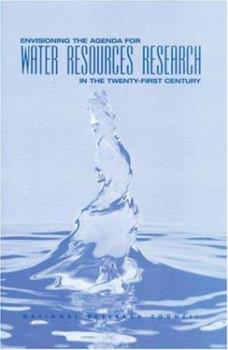Envisioning the Agenda for Water Resources Research in the Twenty-First Century
In this century, the United States will be challenged to provide sufficient quantities of high-quality water to its growing population. Water is a limiting resource for human well-being and social development, and projections of population growth as well as changing social values suggest that demands for this resource will increase significantly. These projections have fueled concerns among the public and water resources professionals alike about the adequacy of future water supplies, the sustainability and restoration of aquatic ecosystems, and the viability of our current water resource research programs and our institutional and physical water resource infrastructures.
With the goal of outlining a roadmap to guide policymakers, the Water Science and Technology Board (WSTB) held a series of discussions at several of its meetings in 1998-2000 about the future of the nation's water resources and the appropriate research needed to achieve their long-term sustainability. From those discussions, the board produced this report, the objectives of which are to:
draw attention to the urgency and complexity of water resources issues facing the United States in the twenty-first century; broadly inform decision makers, researchers, and the public about these issues and challenges; identify needed knowledge and corresponding water resources research areas that should be emphasized immediately and over the long term; and describe ways in which the setting of the water research agenda, the conduct of water research, and investments devoted to such research should be improved in the next few decades.This report discusses major research questions related to the critical water issues that face the nation. It lays out an interdisciplinary research portfolio for the next 20 years and recommends agenda-setting processes that can maximize the nation's ability to prioritize and conduct water resources research.





